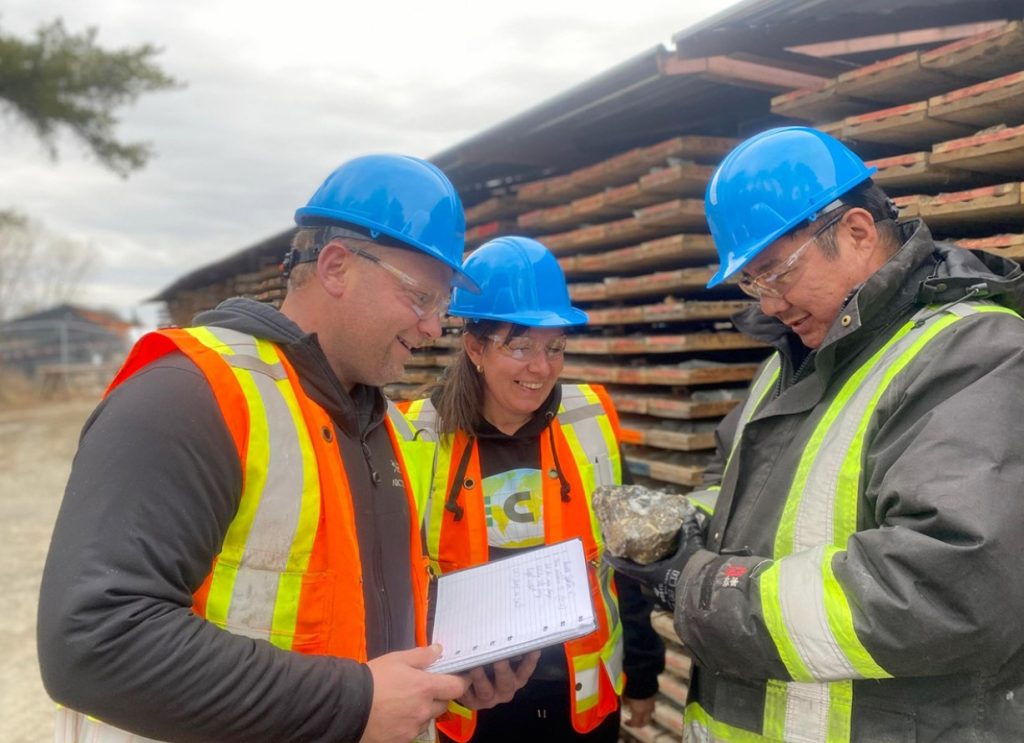
Photo: Oliver Bunic / Bloomberg
The way in which the transition to renewable energy sources will change the geopolitical order, is among the most interesting aspects of transformation. In fact, changes have already begun.
Such a shift has taken place since the advent of fossil fuels, which have shaped relations between the two countries for most of the last century. In the same way, the battle for the resources needed to reduce carbon dioxide emissions will now bring out winners and losers and will probably upset some of the existing balance sheets, writes the Italian edition of the International, quoted by BTA.
In general, analysts tend to believe that countries that have built their foreign policy on the sale of oil and natural gas will lose ground on the international stage at the expense of those who have the necessary raw materials for the energy transition and successful
However, it would be better not to make hasty assessments, as further development will depend on a number of factors that are currently difficult to be provided, recommends the American magazine “Foreign Affairs”. Among them are changes in supply chains, the introduction of new technologies, the discovery of new deposits. It should also be borne in mind that this process will be very long.
The so-called oil countries will have a period of positive development before their decline begins, as initially fossil fuels fuels will “coexist” with renewables, especially to ensure the growth of developing countries.
In addition, a world that relies on renewables is very likely to be more stable and safer than the current one, say proponents of clean energy. The period of transition over the next 30 years will be marked by unprecedented upheavals in the global balance, in the dynamics of power and in the state of individual countries.
The ideal partner
The clash between the great powers to control the resources needed to develop and clean technology has started to work, it has already started and it seems that the United States is not in a good position. The New York Times published an extensive review of the Democratic Republic of the Congo, which currently accounts for half of the world’s cobalt supplies for electric car batteries. The article sheds light on the corruption of local politicians, terrible working conditions and damage to the environment, but also notes Washington’s “decline” on the international stage.
Relations between the two countries have always been were very narrow. During World War II, the United States turned to the Congo for uranium to make the atomic bombs dropped on Hiroshima and Nagasaki. Subsequently, tens of billions of dollars were spent to protect the country’s mineral deposits.
A series of wrong elections at the beginning of the new century, however, changed the situation. The American company Freeport-McMoRan, which controls the Congolese mines, decided to rely mainly on oil, spending $ 20 billion to buy two companies in the sector. When the price of oil collapsed, the group sank into debt and in 2016 was forced to sell the largest cobalt mine in the country. The only potential buyers are two Chinese companies backed by investments from Beijing. One of them acquires the mine for 2.5 billion dollars.
The administration of President Barack Obama realizes that cobalt is becoming a major resource in the world economy and the United States is about to lag behind, but has neither the ability nor the desire to hinder China’s access to the sector, the publication notes. At the moment, Washington’s main economic resources and political efforts are focused on the wars in Afghanistan and Iraq and the operations against Islamic State.
Then Donald Trump arrives at the White House with the promise of to revive coal. As soon as he took office, he canceled all measures to speed up the transition to electric cars, giving China an added advantage. Beijing currently controls 15 of Congo’s 19 cobalt mines.
In mid-November, current US President Joe Biden admitted during a visit to a General Motors plant in Detroit that Beijing had won the race. in electric cars.
“Something went wrong on the road. China is ahead of us,” he said, adding defiantly later that things will change.
Search for lithium
Hope the United States’ reliance on what is lost depends largely on what it manages to find under the desert north of Nevada. According to estimates, this area, known as Tucker Pass, has the largest reserves of lithium in North America, writes the French newspaper Le Monde. Like cobalt, lithium is of great importance for the energy transition. It is used for wind turbines, solar panels and especially for batteries for electric cars. Currently, half of lithium supplies come from Australia and the rest from China (17 per cent), Chile (22 per cent) and Argentina (8 per cent).
The United States, which have about 10 percent of the world’s reserves, have only one mine at Silver Peak, near Nevada, and produce nearly 5,000 tons a year. This is an insignificant amount compared to world production, amounting to 82,000 tons in 2020. Washington is also lagging behind in the production of lithium-ion batteries – in China there are 107 out of 142 factories in the world, and in the US – only nine, although the country is an exporter of electric cars.
Biden is trying to reverse the trend. After taking power, he signed two decrees. One envisages that by 2030, half of the new cars sold in the United States will be electric, and the other aims to improve the management of lithium deposits and develop the battery industry.
Connection reserves at Tucker Pass are key. According to Lithium Americas, the company that will implement the project once it enters operation, the mine will meet a quarter of the world’s lithium demand and provide batteries for one million electric cars, according to Internazionale.
Environmental activists from Nevada oppose the project, convinced that there is no point in sacrificing unpolluted land in the name of ecological transition. According to them, the mine will make the surrounding lands uninhabitable for plants and will endanger a number of animals. In addition, mineral extraction can contaminate water with hazardous metals such as arsenic, antimony and uranium, say environmentalists
Note: This article has been indexed to our site. We do not claim legitimacy, ownership or copyright of any of the content above. To see the article at original source Click Here













